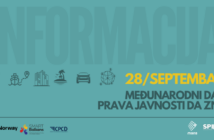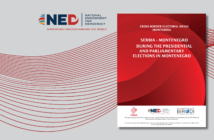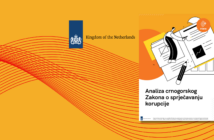The right of the public to know is part of a fundamental human rights scope in the modern world. This right is unthinkable without free access to information, which is one of the key pillars on which modern democracies are based.
On one hand, free access to information makes the work of the authorities transparent and accountable to citizens, while on the other, it enables timely and full awareness of citizens, which is necessary for their effective participation in public matters.
As a key guarantor of transparency, the public’s right to know is at the same time the best defence against corruption. Corrupt practices and abuses of public resources, as it turns out, are dominantly developing in secret, where information is unavailable to the public, and public control is impossible.
Since 2013, the Law on Free Access to Information (Law on FAI) stipulates in Article 12 that institutions shall disclose certain categories of information on their websites.
The Network for Affirmation of NGO Sector – MANS analyzed to what extent authorities, as reporting entities of this Law, comply with its provisions and allow the public to proactively obtain information on their work, without filing a request for information and initiating often complex legal procedures.
This document provides an overview of the proactive disclosure of data by the Parliament of Montenegro, ministries, state administration bodies, local self-governments, and public companies.
Complete analysis download HERE (PDF)



